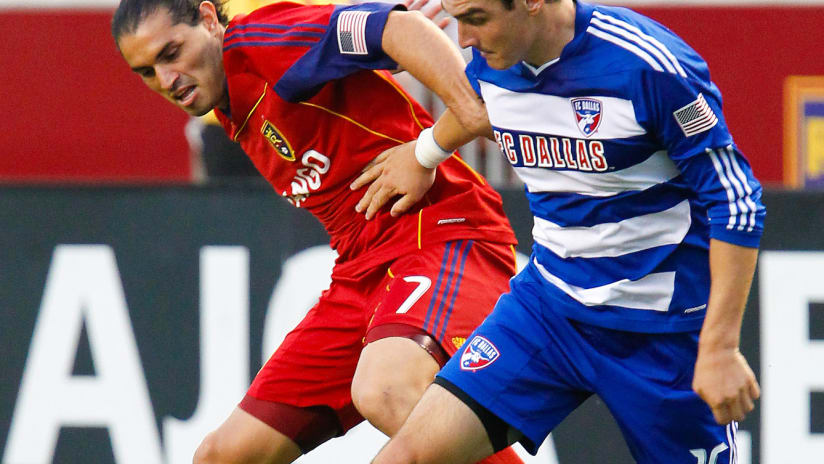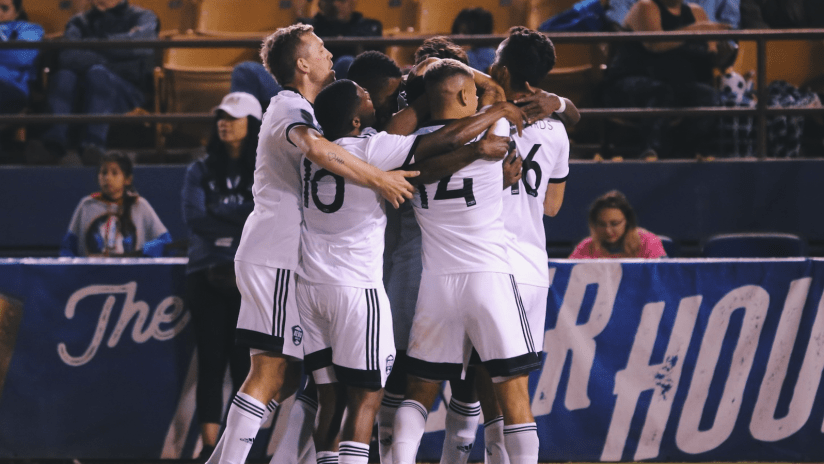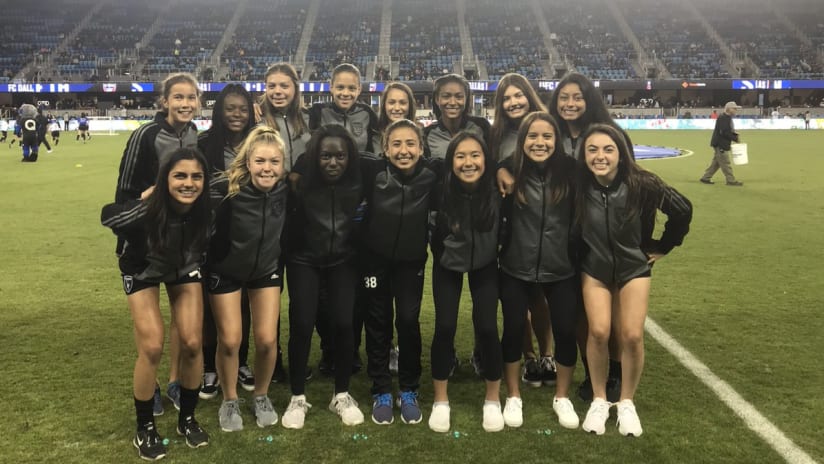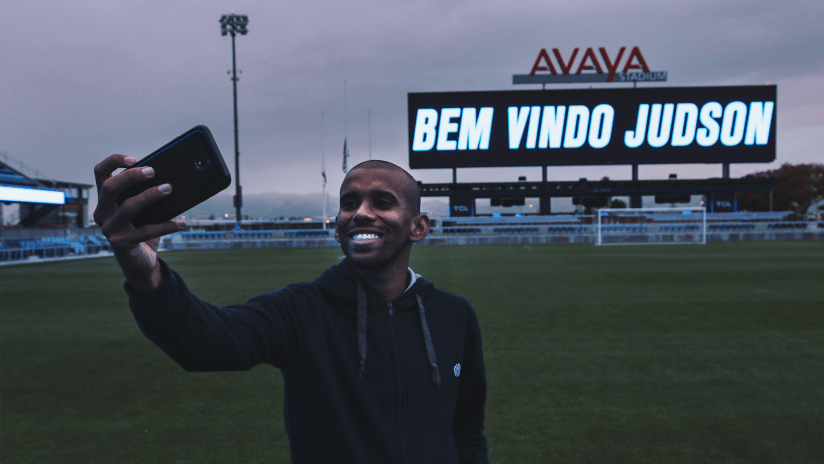A text comes in. It’s a number I don’t know.
“Hey Bobby,”
Any message that starts a text with “Hey Bobby” is probably an older person, which means it’s probably important. My heart starts to race. I swipe to unlock my phone and read the rest of the message.
“We’d love to chat with you for a few minutes if you’re free.” It’s an MLS coach. They want to do an interview. They must be interested in me. My heart goes to a new speed, one beyond anything I've ever experienced on the field.
I read the message again to make sure I understood it right. I put the phone back in my pocket. I’ve learned from first dates throughout my life that I should never respond right after I read the message.
Give it a minute. Be cool bro, be cool.
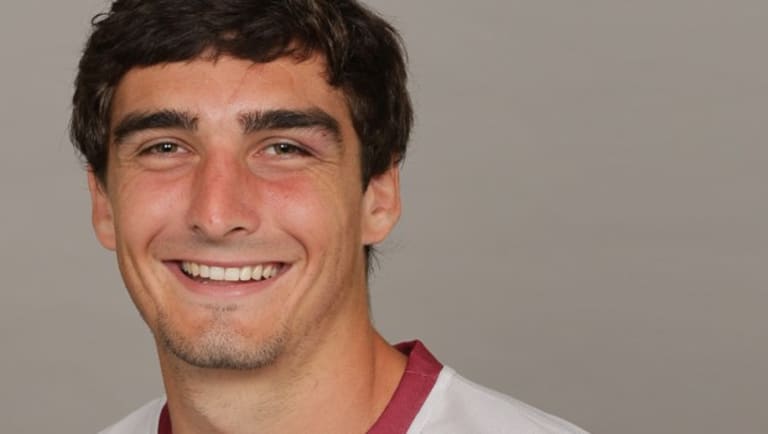
In 2011, a fresh-faced Bobby Warshaw hoped to impress MLS coaches at the Player Combine.
4:15 p.m.
They said to be here at 4:30, but obviously I need to show up early. But I can’t knock on the door 15 minutes early. Crap. What do I do? Just stand out here awkwardly? Nobody wants to draft the awkward guy. But I want them to know I’m the kind of guy who shows up early. I’m going to knock.
Thump thump thump.
“Sorry, we are in with someone else. We will come get you in a few.”
Crap. Bad start. Why did I think it was a good idea to knock so early?
4:30 p.m.
It’s a normal hotel suite. Or, at least I think it’s normal. Now that I think about it, I’ve never been in a hotel suite before.
Four men stand and shake my hand. I don’t know three of them. How the heck could I have come here and not looked up their staff? They are going to expose me as a fool. I’m screwed.
“Hey Bobby, nice to meet you. Have a seat.”
Sit up straight, Bobby. You got this.
They all stare at me. One starts to talk, but all four have their eyes locked on me.
“So I have a question for you,” the coach starts.
I really wish these other three guys would look somewhere else. Or at least blink. Why aren’t they blinking?
Focus, Bobby!
“You graduated from Stanford. Why would I trust you to care about soccer at this point? How can I know you’ll work as hard as players with everything to lose?”
Whhhattttttttttt? We couldn’t have started with my favorite pastime?
What do I even say to that?
Remember, just use the words, “team” and “passionate” a lot. Any complete sentence with the word “team” can’t sound that bad. Coaches eat that stuff up.
I open my mouth to answer. Everything after that is a blur.
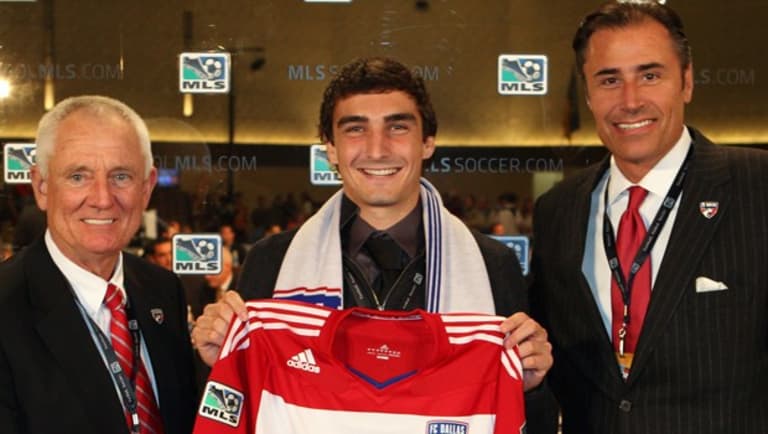
Bobby Warshaw was ultimately drafted No. 17 overall by FC Dallas.
This Week, in Orlando
Just like I experienced back in January 2011, many of the players at the 2018 Player Combine will be invited to hotel rooms for interviews. Some clubs will meet with upward of 40 players. They want to get to know the player or, perhaps more specifically, the person. Even if they don’t draft the player, they will keep the notes in their records for potential signings or trades down the road.
The interviews prove vital for teams in one aspect, but dangerous in another.
“It’s largely a process of exclusion,” says Kurt Schmid, Director of Player Personnel and Scouting for the LA Galaxy.
Schmid, entering his 10th year of evaluating college players, is one of the most experienced scouts in the league. “Most guys are very similar in terms of character. It’s a byproduct of college,” he says. “Your first two years of college are huge for maturation and character development.”
In other words, rather than looking for someone who impresses you, you’re mostly keeping an eye out for someone who worries you. Since most players coming through the SuperDraft have decent character, teams are more concerned with weeding out players than finding someone who impresses them.
One specific worrisome sign coaches will probe for, as another MLS coach noted, is lifestyle. If you get the kid talking about his Big Macs or frat parties, it’s a bit of a turnoff.
Schmid says keeping an eye out for danger is a safer path than looking to get impressed. If you spend too much time looking for a player to wow you, “sometimes it can lead you down the wrong path. You might get predisposed toward him. You get excited, but you forget he’s the same quality.”
While character is good, it can’t make up for not being good enough on the soccer field.
One of the most useful tools for sifting through the players, Schmid explains, is asking questions that ask the player to self-reflect. “Just let them talk about how the game went. Ask them how the coach asked them to play. What they thought they did well or poorly.” If he gives good answers, “you know you can work with him, you can talk with him. He’s a learner.” But if you see a guy who’s unrealistic about his performances or ability, it’s a red flag. He might not be the type of person you want to work with on a daily basis.
From a personal standpoint, I’ve always found the idea of evaluating athletes from a human perspective to be a messy concept. You want someone who’s confident, but not too confident; who’s brave but not reckless; who wants to learn but won’t lose grasp of his own principles. To be an elite athlete takes a level of delusional naiveté. On paper, we all want our players to be well-rounded individuals. But on the field, we want them to be warriors.
The mental and emotional elements of the game – the human ones – are often more important than the physical parts. Few players are prepared to play at the professional level right away. They still need to learn and grow, or at least adjust. And whether they take those steps largely depends on what's between the ears. The interview provides an imperfect window.
It’s more difficult to evaluate what a player has on the inside than shows on the field. For the coaching staffs that can decipher the ambiguities, it’s a chance for teams to separate themselves from the competition.
BOBBY WARSHAW is a former professional player who played in MLS (2011-2013) and in Scandinavia after an accomplished college career at Stanford. A columnist and podcast host for Howler magazine, Warshaw is a published author and has also appeared on ExtraTime Live and ExtraTime Radio.

